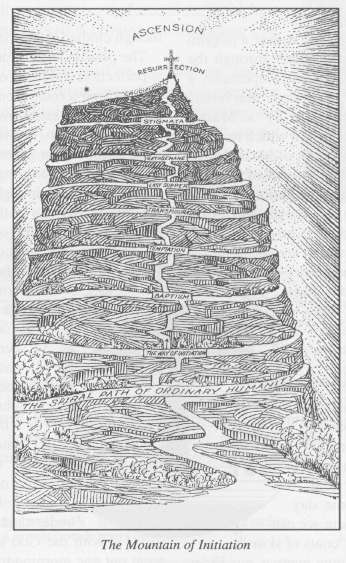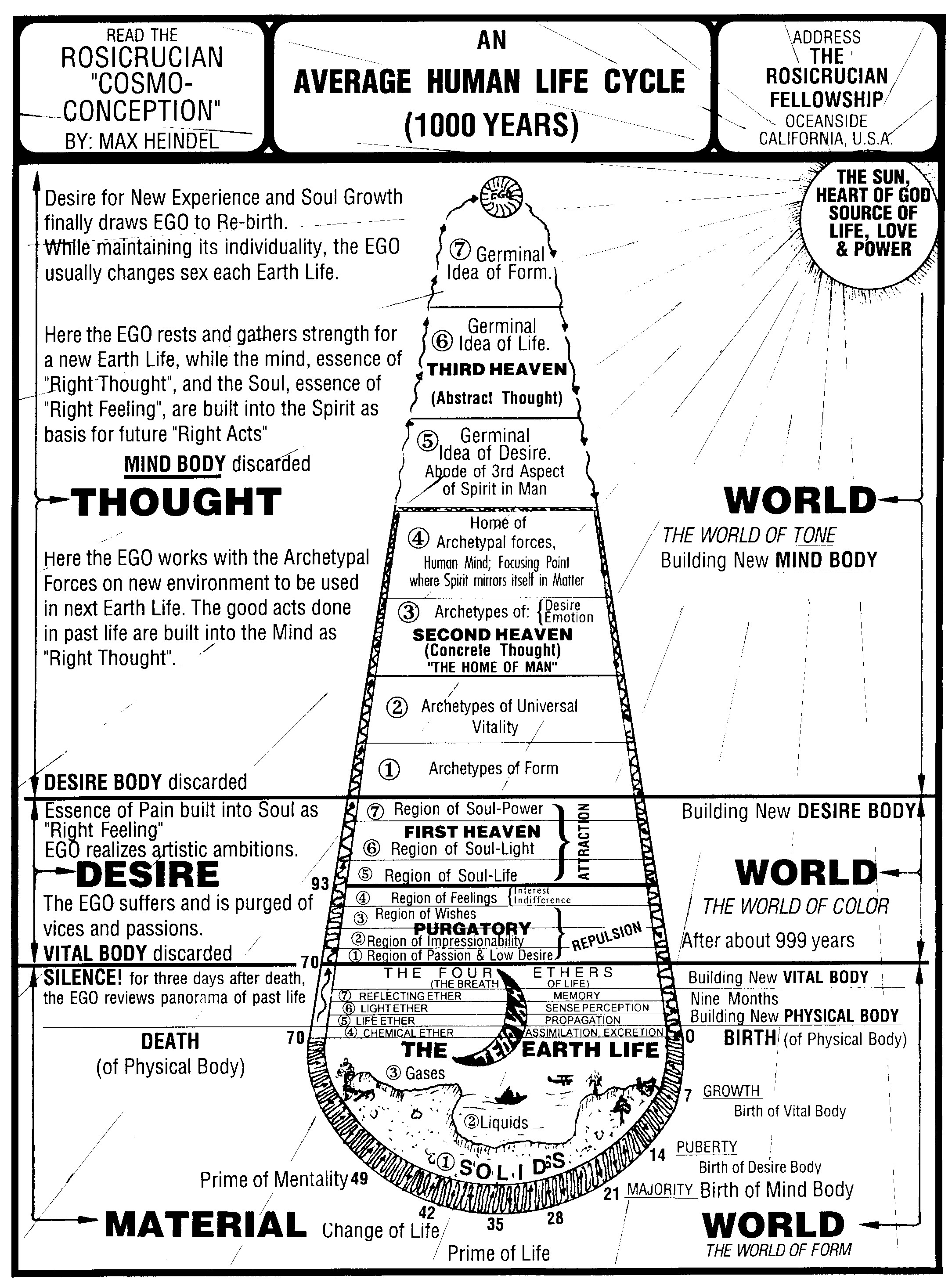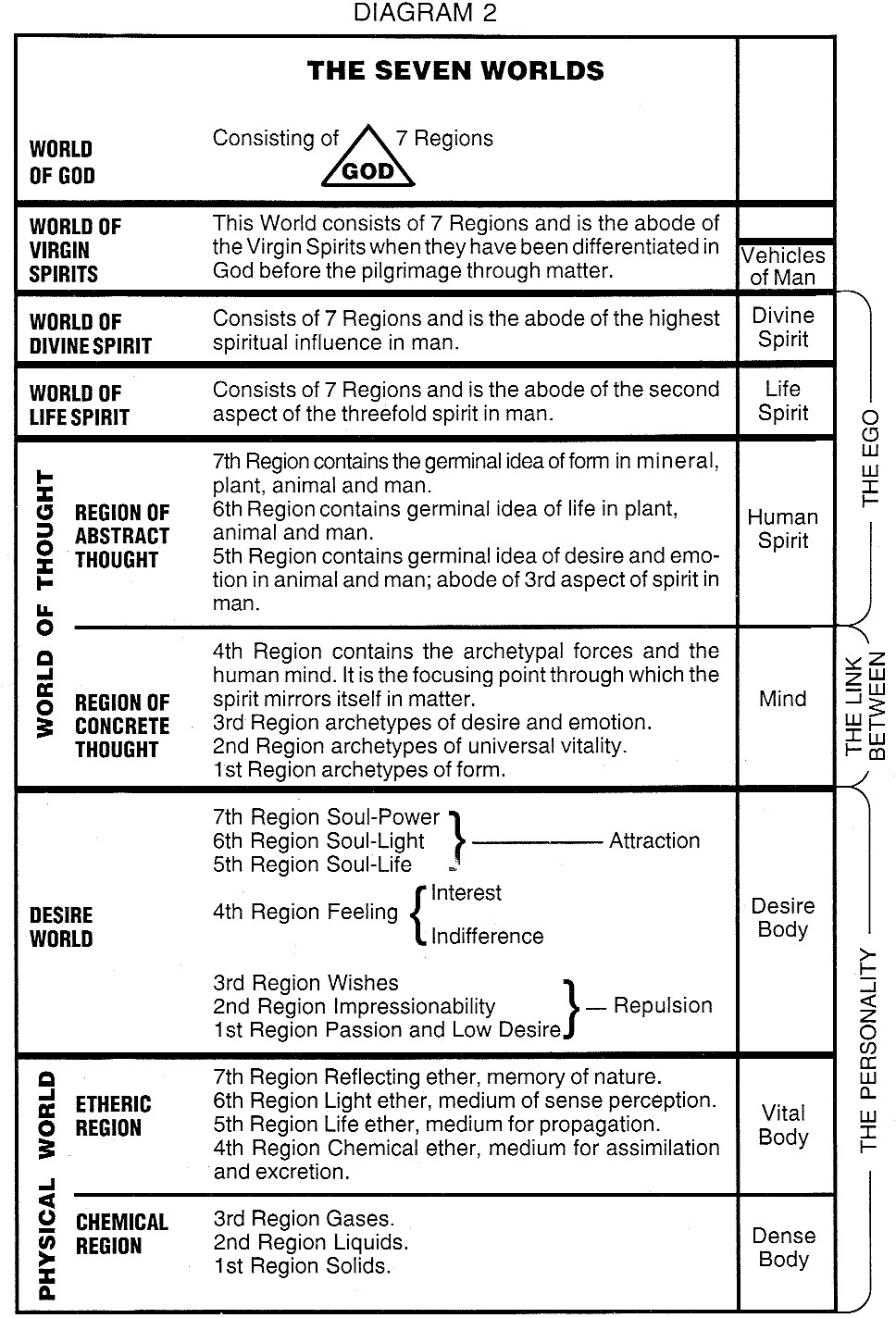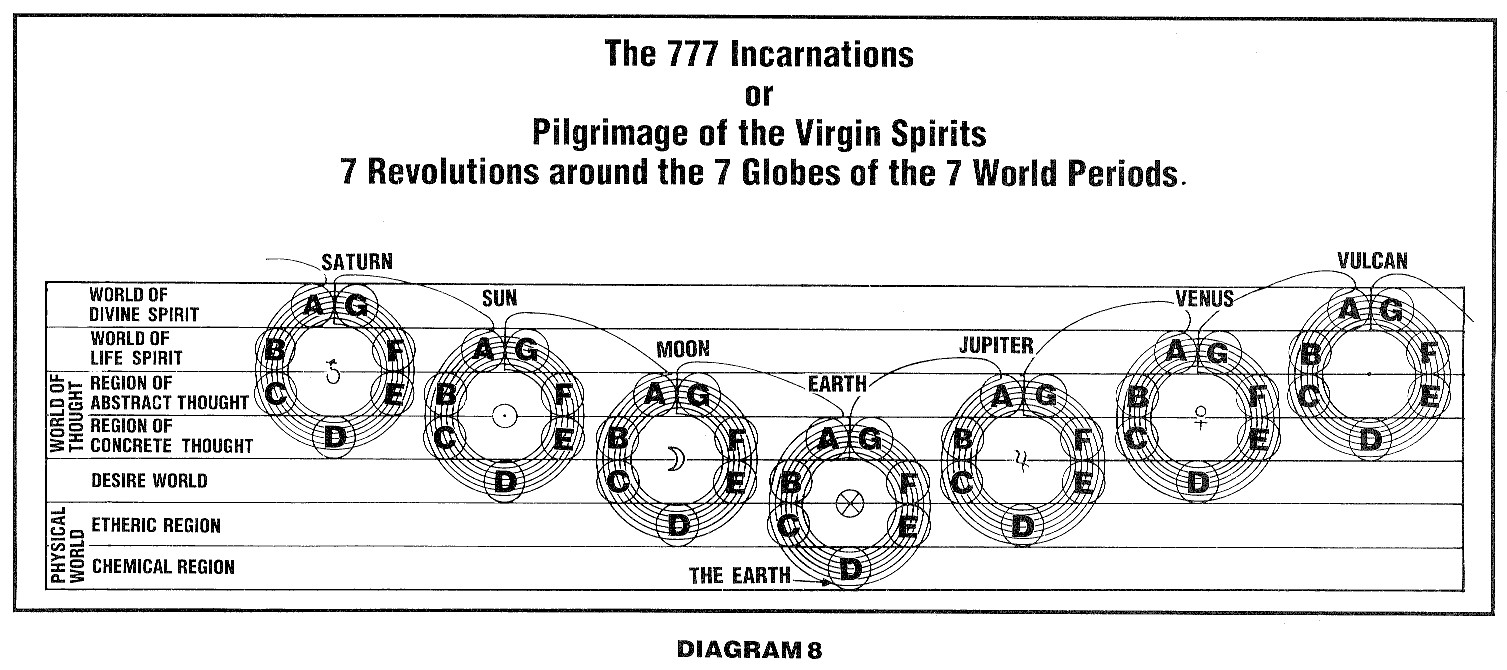
| rosicrucianU.com | ||
| Simplified Scientific Christianity |

Man, of necessity, is ever a pilgrim of time, a wanderer through the mazes of illusion; a spectator, a sightseer at some marvelous exposition built by a Master Craftsman, an observer of events in which he has a part but which are beyond and not of his real Self. If he be wise, he absorbs life's lessons of illusion, secure from its deceptions and limitations.
I say that he is of necessity such a pilgrim. For it is only in the mazes of time that he can gain the faculties, powers, and gifts which are necessary if he would become the master of illusion. The true home of the spirit is elsewhere in the realm of reality, where there is "no variableness, neither shadow of turning." Was it not some wise and discerning mystic who said, "Here we have no continuing city, but we seek one to come"? And again, "not made with hands, eternal in the heavens." It may seem a far goal, an endless journey, but some day we shall reach the place where we can make for ourselves and use "coats of skins" at will, and in that day become even as our Elder Brothers, the Mind-born Sons of Wisdom, "without father, without mother...having neither beginning of days, nor end of life."
To know this consummation it is necessary to be able to wield the rod of power which creates and disperses at will and as the spirit has need. That faculty can only be gained by experiencing all that time can offer and realizing that man is not subject to the passage of days but stands apart from them, though clothed in garments which are thus subject.
The pilgrim's is a timeless journey, since his end is perfection and his goal is eternity. He is perpetually seeking a route from the better to the best, the lesser to the greater; from illusion to reality, separateness to union, the fragment to the whole. The microcosm is ever yearning for the macrocosm. Its essentials are ever the same, the gaining of experience and wisdom through a series of excursions into the curious byways of this illusion known as time. For time is the greatest of all illusions. We think we live by grace of a clock, of the days that pass, the hours that tick the years away; but when some crisis is upon us, then do we know that a minute can encompass a century and a day seem as a second when it is past. It is then that we realize the significance of the phrase, "with Him a day is as a thousand years and a thousand years as a day." Inspired by this prophetic utterance, one of the world's great poets wrote of the monk who could not understand how this could be even with the God he worshiped, so when he went out one morning to walk before breakfast, he listened for ten minutes (he thought) to the song of a little bird whose music was transcendently sweet. When he returned to the monastery he found that the ten minutes had been a thousand years to the world he had ignored while he listened.
The reason why to the pilgrim time seems the only reality while he is experiencing it is that he must be continually putting on and taking off "coats of skins," for it is only through these that he can gain experience. But it is equally through these that time is able to impose its shadow show as reality. For these "coats" rest, food, and shelter are necessities. One of the greatest impositions of time is the requirement that while the pilgrim begins life as a fresh, agile creature, as the days pass he grows older, his muscles become stiffer, the bloom departs from his cheeks, his step becomes less sure, his eye less keen, his zest departs-until at length the illusion is complete and he is an aged dweller in the halls of time, diminished by its depredations, cowering before the blasts of waning days. But this very conception is a prison house, a narrow cell to bind the pilgrim to the illusion that life is a thing that can be measured by the passage of years, when in reality it is incommensurable.
Life is power, force, and endless vitality. Because for a few hours, days, and years a little of it is pent up inside the physical body does not mean that it is captive to that body. Life is as deathless, timeless, ageless as the spirit of the universe and its span of activity is as measureless. Life does not start with each new body born into the world. It does not age with the passing years. It never grows old. It merely dwells for a few hours in the world of illusion, acquiring some of the wisdom and ego strength it has come to find. When the "coats of skin" become inadequate for its further flowering, it drops them to return to its own true habitat to await a favorable time for taking on the illusion of time anew and garnering a new store of knowledge.
Yet even the man who yields most fully to the deception of time, acknowledging that he grows old with the passage of the years, still holds rebellion in his mind against what he terms the necessity of age, the dimming of faculties, the palsied hand that no longer obeys his behests. The immortal spirit which dwells within knows kinship with the stars. He is longing for the touch of the winds of eternity to fill his lungs and renew his energy. His true home is elsewhere. He is a citizen of the larger sphere, of the wider outlook, the greater breadth of view, and he is never satisfied with the limitation of the years.
The spirit of man begins his pilgrimage through the endless halls of time as a living Spark of the Divine, but one which must grow through wisdom garnered by his many journeys into an encompassing Flame, a living Fire which shall for the countless ages of the Infinite shine forth to light other Sparks on their expanding way. At first, and for many rebirths, this Spark cannot realize, while dwelling in his "coats of skins," that he possesses another home beyond the stars which he has temporarily abandoned.
But as gradually more and more fruits of experience accumulate in the real home of the pilgrim, flashes begin to appear. Scenes rise before the inner eye, an experience comes to which he answers, "I have had this before." Landscapes unfold to the vision and he says, "I have been here before." Old friends are met and warmly greeted with a remembrance of the elsewhere clearly before him. Old enemies also are met and debts are discharged. A great expansion of consciousness takes place. When this occurs, life both in the body and out becomes a wondrous adventure, not in time, but in the endless fields of eternity. More and more we reap in the body that which we have sown and sent back as sheaves to the Homeland.
The pilgrim now glimpses the great plan of evolution slowly but surely fulfilling itself. The drama is seen through the veils of time, but it is none the less real and impressive for all that. A new creature rises who from the dust of disappointment recognizes the fruit of opportunities ungrasped in some other far off day when, in another body, he carelessly thrust aside the part he should have played and another took the role he should have chosen. By the agony of loss he learns three things: first, that naught that was not his could he retain; second, that what he takes from another must be repaid, though it be in drops of blood; third, best knowledge of all, that nothing that is truly his can be taken from him.
In the light gained from the drama of evolution and his part in it, the pilgrim ceases to worry, to fret, to harbor unease. The dizzying whirl of time slows to a steady, sure, quiet vibration which carries him more swiftly, unerringly toward his goal. No obstacles, no delays, no disappointments can mar the serenity of his progress. No loss can depress him, no triumphs or delights long delay him, for he knows these as only another phase of time's magic shadow show and uses all events, all thoughts, all emotions as stepping stones to pave the way out of illusion into life, out of time into eternity.
He learns another important thing: that he is not the slave of his "coats of skins"; that if he draws upon his own eternal, unaging, ever-eager self, he can be young though his hair be white and his limbs become slow and uncertain. Secure in his garnered knowledge of the ages, he paces the halls of time, absorbing new experiences, transmuting them into the gold of ageless wisdom which shall endure when time shall be no more. He smiles at his own pain which makes him the brother of all who suffer and enables him to be their comforter. He accepts adversity because it brings with it the strength to endure. He learns to draw into his consciousness the sufferings of the great orphan, Humanity- all of its agony, all the crushing disappointments that seem to threaten the life of the spirit; all the despairs that know no mitigation; all the hopes that die before they flower, leaving only dull pain behind; the separations that seem endless, and the days of pain that seem to never cease.
The pilgrim learns to tread the way with a broken heart, with inward tears that ever fall for the sorrows of the world, but also with the full knowledge that some day the illusions will pass, the eyes will be truly opened, and then these things, too, shall pass away.
All this he does that he may be deemed worthy of having brought to term his crucifixion on the cross of matter, of having held his place with full patience, endurance, and sacrifice that another universe may have its place in the great drama of evolution and other Sparks of the Flame may have their day of evolution in it. In that day he knows he will be fully one with all that lives, and this knowledge makes sweet the present treading of the Way.
At length the time will come when the perfected pilgrim will become a citizen of the kingdom of light, with darkness a dream of the past, bliss a living reality and agony forever over. Eternal peace will be his for the taking. He has but to stretch forth his hand to obtain the goal he has earned through the anguish and joy of many lives. Then the choice is offered him. He can take the peace of perfection, the glory of full union with the greater Self, the pure love that awaits him, or he can turn back and by taking the path of renunciation help those left behind, his own brothers and sisters still groping in the illusion of time.
And when he makes the great renunciation, when he binds himself to the world he has conquered, then the pilgrim becomes that most sacred thing earth can produce, her fairest flower and the bearer of her proudest title, "Savior of Men."
— Pansy E. Black
— Rays from the Rose Cross Magazine, November/December, 1995

|

|

|
|
|
Contemporary Mystic Christianity |
|
|
This web page has been edited and/or excerpted from reference material, has been modified from its original version, and is in conformance with the web host's Members Terms & Conditions. This website is offered to the public by students of The Rosicrucian Teachings, and has no official affiliation with any organization. | Mobile Version | |
|